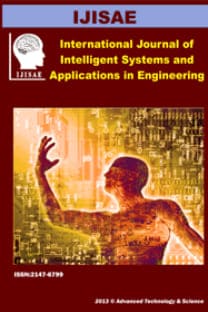TurkiS: A Turkish Sentiment Analyzer Using Domain-specific Automatic Labelled Dataset
- ISSN: 2147-6799
- Yayın Aralığı: 4
- Başlangıç: 2013
- Yayıncı: Ismail SARITAS
Binary tree-seed algorithms with S-shaped and V-shaped transfer functions
MEHMET AKİF ŞAHMAN, Ahmet Cevahir ÇINAR
Performance Analysis of ANN and Naive Bayes Classification Algorithm for Data Classification
Mücahid Mustafa SARITAŞ, Ali YAŞAR
Impact of Virtualization Technologies in the Development and Management of Cloud Applications
MEHMET AKİF ŞAHMAN, Ahmet Cevahir ÇINAR
Neural Network Based Control of a Two-Mass Drive System
GONCA ÖZMEN KOCA, DENİZ KORKMAZ
Solution of Multiple Travelling Salesman Problem using Particle Swarm Optimization based Algorithms
Sevda DAYIOĞLU GÜLCÜ, Humar KAHRAMANLI ÖRNEK
Multi-objective Design Optimization of the Robot Grippers with SPEA2
Ayşenur AVDER, İsmail ŞAHİN, MURAT DÖRTERLER
Optimization of Location Assignment for Unit-Load AS/RS with a Dual-Shuttle
TurkiS: A Turkish Sentiment Analyzer Using Domain-specific Automatic Labelled Dataset
